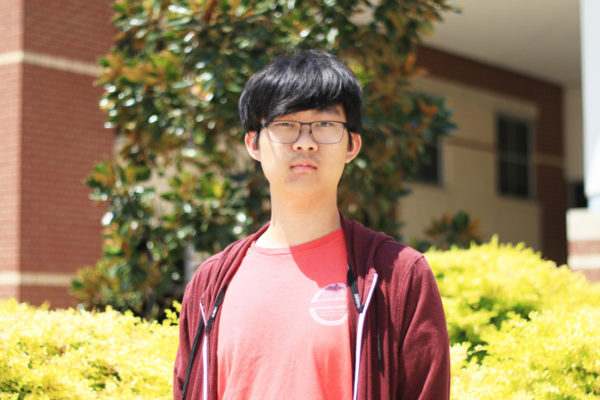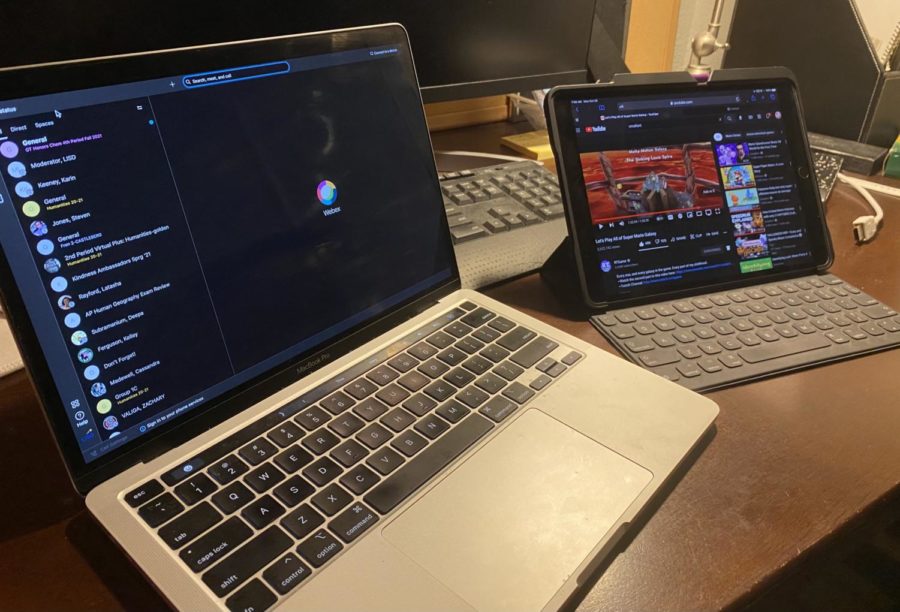COVID-19’s consequences on learning
Due to the restrictions that came with the pandemic, 68% of Hebron students were learning virtually last school year, whether it be full or part-time. The COVID-19 pandemic brought about a slew of complications with the education of many that leave scars today. We now have an education gap between last year and this year.
In a poll taken at Hebron — distributed to 107 random students during a lunch period — regarding how COVID-19 affected their school year, 67% of students agreed that the pandemic had a negative impact on their learning.
“At the beginning of this year, there have been more low grades because students are not and have not been ready to jump off from their current classes from where they were last year,” head counselor Dr. Justin Fields said. “Some teachers have been having to work from a new starting point for students.”
According to the United States Census Bureau in 2020, nearly 93% of households with school-aged children report having participated in virtual learning. Not every student has access to a reliable device and internet connection, and many students struggle to learn due to the relaxed nature of online school.
“If you had to be at home because of a health-related issue, and you were taking a lot of classes virtually [without] reliable internet access, or [with] a technology problem, learning could have been very inconsistent for you,” Fields said. “While assistance was available to get those things fixed, our technology departments were stretched to the limits to provide support. Not having that regular access to teachers, course content, or even the ability to do research through the internet is detrimental.”
Virtual learning was also a struggle, as some students find that it’s harder to learn in virtual classes than in person. According to the previous poll, 88% of students said it was difficult to academically readjust this year.
“Virtual classes were a lot harder for me,” sophomore Blaine Hudson said. “Not that the classes were hard, but it was a lot harder to pay attention and learn anything.”
Fields said students appear to have been affected behaviorally since returning from virtual learning.
“I think student discipline has worsened,” Fields said. “Some things like the TikTok challenges are examples. People are participating in those things, unfortunately, but I also think that there has been evidence of students bringing stress that they’ve been carrying with them to school for the past year and a half, and that’s being expressed in misbehavior or disciplinary problems.”
Colleges are also accounting for the repercussions of the pandemic, taking into account that resources were limited for students.
“As a result of the pandemic, many colleges have begun to make the ACT or SAT tests optional,” Fields said. “While those had previously been a required part of applications, with so many testing locations closed because of COVID-19 and because of student access being limited, that’s been made optional.”
With the COVID-19 still ongoing, Hebron has worked to mitigate the damage from the pandemic and also increase student spirit, keeping people engaged.
“There’s just more engagement being in the school,” Fields said. “Homecoming week is a great example. It’s something that helps to make you feel a part of schools so that when [you] come, I feel comfortable so I can learn. If you were really missing that connection last year, I think it’s very difficult to get through with classes as well.”

Senior Alexander Cha is a reporter and this is his third year on staff. His favorite subject is English and his hobbies include writing stories and playing...



